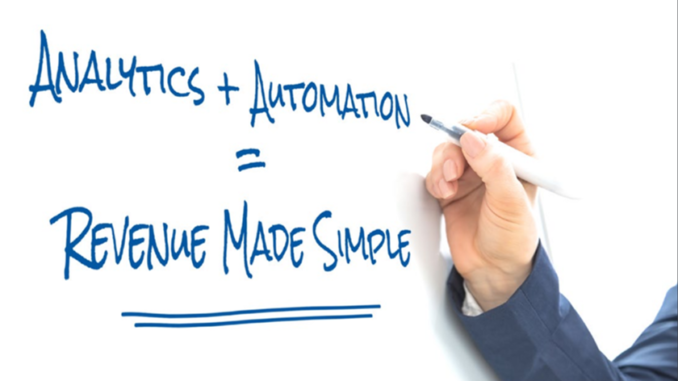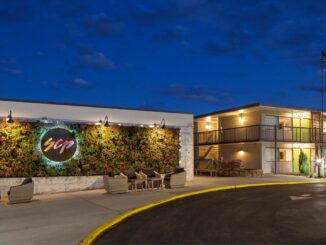
By Jason Freed, Director of Marketing Communications at Duetto - 7.10.2019
For decades, hoteliers have looked to technology to help measure and forecast demand so they could dynamically price their rooms accordingly. With data at their fingertips, hoteliers could make smart pricing decisions to capitalize on high-demand days. But revenue management and the technology behind it is evolving rapidly. As the world becomes increasingly digital, travelers’ behaviors are
continuously changing and so too must hoteliers’ strategies to meet and exceed their expectations, as well as remain profitable.
Before the turn of the century, in what seems like simpler times, hoteliers were hiring former reservation managers and front-desk managers to pull pricing levers. Now the process requires highly-skilled mathematicians, often with degrees in economics and statistics. The hotel business has become a digital numbers game, now more than ever.
Therefore it’s critically important for hoteliers to look beyond revenue and lean on technology to enable and empower them across multiple areas. Technology is no longer built for one specific task — to help drive revenue, for example — but instead aims to help hoteliers work smarter and more effectively, and to help them provide a better guest experience. Once those benefits are in place, revenue increases
will follow.
A reliance on technology can be scary to hotel operators. Some, particularly revenue managers,
feel automated technology could replace their job. But revenue management is no longer just a pricing function and the incredible amounts of demand, guest and transactional data available means there
is more art and analysis to the role than ever before. Revenue systems are a tool to enable revenue teams, not to replace them. Is it fair for revenue managers to worry that technology is going to replace their job?
“If the only way you are adding value as a revenue manager is through pricing strategy, you’ll be obsolete in five years,” says Mike Medsker, cofounder of Focal Revenue Solutions. “The robots are coming, and they are pretty good at crunching numbers and updating prices. “However,” he continued, “those that see this as an opportunity rather than a threat understand that by outsourcing the more mundane revenue management tasks to technology, they can free up their time for determining strategy, building culture, and implementing the holistic changes that will build long-term value for the hotels under their care.”
We know that revenue management is not a 9-to-5 job. There are plenty of things that will happen when the revenue manager is not at his or her desk and even some things, like spikes in demand, that could
happen while the revenue team is sleeping. This is where automation lends a hand, ensuring technology steps in and reacts in real-time to these triggers. As hotel technology improves, it will be able to do much of the tedious work for hoteliers, providing them time to focus on bigger-picture strategies. Opening the 2019 NYU International Hospitality Industry Investment Conference, Chairman and hotel owner Jonathan Tisch said 42% of industry workers fear losing their job to automation, citing recent work from the Pew Research Center. To calm these fears, Tisch recommended working closely with employees on technology integration.
“Specifically, we need to ask, how can technology free-up our team members from more mundane tasks and allow them to focus their energies on high value-added service that only humans can deliver,” he said.
Today’s systems are handling much of the complicated, repetitive and time-consuming tasks, simplifying human processes and freeing up revenue managers to spend more time away from their desks. In ideal scenarios, revenue managers are “managing by exception,” or focusing less on pulling pricing levers and more on building strategies to capitalize on their most compressed days. With more time to strategize, they can assist in other important areas like digital marketing and distribution, providing departments across the hotel with accurate data on which to make optimal decisions. As an added benefit, they’re working a more normalized work week, spending more time with friends and families.
It’s time, as an industry, to look more holistically at the role of revenue management and ensure it is sustainable. We need to improve revenue teams’ quality of life, which includes improving the performance of the hotel but also many other intangibles. Technology — driven by data and
machine learning — can help hoteliers make progress both personally and professionally.
“Working together we can shape our own future — lifting travel and hospitality to new levels of growth
and prosperity,” Tisch said.
This article is excerpted with permission from Duetto’s new eBook Revenue Made Simple (currently available for complimentary download).
 Jason Freed is Director of Marketing Communications at Duetto, which provides a suite of cloud applications to address hospitality’s complexity in distribution and technology, providing solutions that increase organizational efficiency, revenue and profitability. More than 3,000 hotel and casino properties in more than 60 countries have partnered to use Duetto’s applications, which include GameChanger for pricing, ScoreBoard for intelligent reporting and BlockBuster for contracted-business optimization.
Jason Freed is Director of Marketing Communications at Duetto, which provides a suite of cloud applications to address hospitality’s complexity in distribution and technology, providing solutions that increase organizational efficiency, revenue and profitability. More than 3,000 hotel and casino properties in more than 60 countries have partnered to use Duetto’s applications, which include GameChanger for pricing, ScoreBoard for intelligent reporting and BlockBuster for contracted-business optimization.
Are you an industry thought leader with a point of view on hotel technology that you would like to share with our readers? If so, we invite you to review our editorial guidelines and submit your article for publishing consideration.



